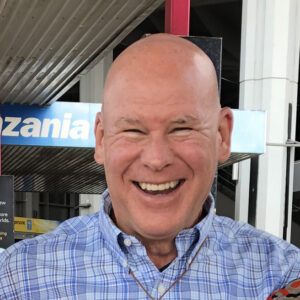Sunday Reflections
29th Sunday in Ordinary Time – October 20, 2024

Reflection by:
Fr. Jim Donohue, CR
Over the last few weeks, we, as followers of Jesus, have been invited to learn more about discipleship from Mark’s gospel. Three times in the gospel, Jesus announces to his disciples that he must go to Jerusalem to suffer and die before he will be raised on the third day. Each time the disciples greet this news with behavior that suggests that they have no understanding. And, each time, in turn, Jesus uses the occasion to teach about discipleship in the form of paradoxes (seeming contradictions).
On the first occasion (in chapter 8), Peter urges Jesus not to go to Jerusalem. Jesus responds with the sharpest rebuke in the gospel: “Get behind me, Satan, for you think not like God thinks, but like human beings think.” After first stating that disciples must carry their cross, Jesus provides his first paradox about discipleship: in order to save yourself, you must lose yourself for his sake and for the sake of the gospel.
On the second occasion (in chapter 9), when Jesus announces what awaits him in Jerusalem, the disciples are discussing who among them is the greatest! In response, Jesus continues his lessons on discipleship in his second paradox: in order to be the greatest, you must be the servant of all.
And now on the third occasion (in chapter 10), after Jesus reminds them of what lies in store for him in Jerusalem, James and John approach, asking for seats on his right and on his left when he comes in glory. Jesus is talking about all that will happen in Jerusalem—and interestingly, of the three passion predictions, this one includes the most details of his sufferings—and all James and John can think about is prestige and power and glory! So, again, Jesus teaches about discipleship in the form of a paradox: whoever wishes to be the greatest, must become the servant; whoever wishes to be first, must be the slave of all.
Two things are worth noting. First, Jesus points out that they will drink from the cup that he will drink from. Indeed, they do. In Mark’s gospel, we are told that “they all drank from the cup” at the Last Supper. But, rather than being a mark of pride, it becomes one of shame. This gesture, which is underlined by Peter’s insistence that he will never desert Jesus, is symbolic of their solidarity and commitment to stay with Jesus throughout his ordeal. But the gesture stands in stark contrast to what really happens; they do, in fact, abandon him when he is arrested. Mark’s gospel makes this clear in the verse: “And they all ran away.” Despite Jesus’ efforts, the disciples have remained “blind” to seeing what it means and costs to be a disciple.
Second, the story that follows today’s gospel is about the blind man, Bartimaeus. Like James and John, Jesus asks the blind man what he wants Jesus to do for him. While James and John ask for prestige and power and glory, the blind man asks to see. Throughout Mark’s gospel, this image of seeing is about having faith. In fact, those who can “see” are “blind” and those who are “blind” can “see.” Unlike the disciples, this poor, insignificant character asks Jesus for what is most important in the life of discipleship. It is significant that Mark ends this encounter with the cryptic phrase that this man now began “to follow him on the way”—a metaphor of what this man has become: a disciple!
Share This Post
More To Explore

6th Sunday in Ordinary Time – February 15, 2026
This week, animated by today’s readings, let us trust in the wisdom of God, and the presence of the Holy Spirit…

5th Sunday in Ordinary Time – February 8, 2026
We are called to lift up the lamp which God has given us… May our actions, powered by our ever-loving God, warm and protect all those in affliction.
